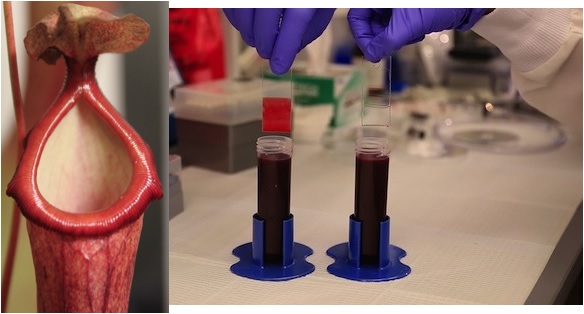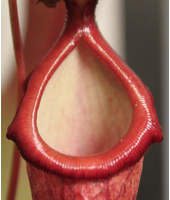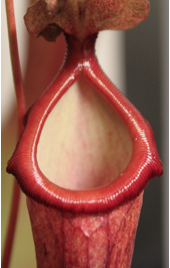
(Left) This pitcher plant (Nepenthes alata) uses a layer of water trapped on the surface of its leaves to cause insects to slip inside. A new coating for medical implants mimics this strategy, creating a non-stick surface that reduces the risk of blood clots forming on the devices. (Photo credit: Mike Super) (Right) These glass slides were dipped in blood to demonstrate the effectiveness of the TLP coating. While blood sticks to the untreated slide on the left, the TLP-treated slide on the right emerges entirely clear. (Credit: Harvard’s Wyss Institute)
Researchers have developed a non-stick coating that could make implanted devices – such as blood catheters to artificial hearts – safer to use. Currently, some patients using these devices must be treated with drugs to prevent clots from forming, but these drugs pose risks to elderly or injured patients, making them prone to uncontrolled bleeding.
The new coating uses both immobilized and liquid layers of perfluorocarbons – a substance chemically similar to Teflon – to create an ultra-slippery surface in the same way that certain pitcher plants use a layer of water to make insects slip into their pitchers.
A test to see if a live gecko could cling to the surface with its sticky feet show that the coating repels sticky objects very well, while tests in pigs showed that it is able to resist clots, without the use of anticoagulant drugs.
Original research paper published in Nature Biotechnology on October 12, 2014.
Names and affiliations of selected authors

